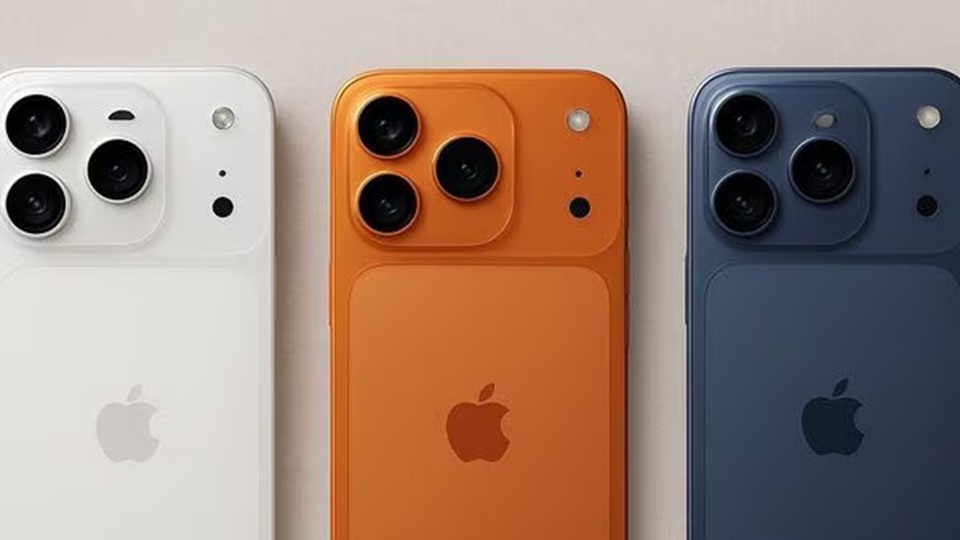Apple Tim Cook Downplays Trump Tariffs in iPhone Price Hikes, but Rising Costs Tell a Different Story


Apple CEO Tim Cook has denied that the latest round of iPhone price hikes is linked to President Donald Trump’s sweeping tariff plans, even as new disclosures suggest the company is absorbing billions in added costs from the ongoing U.S.-China trade war.
“There’s no increase for tariffs in the prices to be totally clear,” Cook told CNBC’s Jim Cramer from Apple’s Fifth Avenue store in New York City on Friday, as the iPhone 17 lineup launched worldwide.
It was one of the first times Cook had directly addressed tariffs in relation to iPhone pricing.
Register for Tekedia Mini-MBA edition 18 (Sep 15 – Dec 6, 2025) today for early bird discounts. Do annual for access to Blucera.com.
Tekedia AI in Business Masterclass opens registrations.
Join Tekedia Capital Syndicate and co-invest in great global startups.
Register for Tekedia AI Lab: From Technical Design to Deployment.
Behind Cook’s assurances, the numbers tell a different story. In August, Cook revealed that tariffs could add as much as $1.1 billion to Apple’s expenses in the September quarter alone. He disclosed during an earnings call that Apple had already swallowed about $800 million in tariff costs in the June quarter — slightly less than the $900 million the company had estimated in May.
Most of the charges, Cook explained, stemmed from levies imposed under the International Emergency Economic Powers Act (IEEPA), which largely targeted goods sourced from China. Apple has been actively diversifying its supply chain toward countries like India and Vietnam to blunt the fallout, but Cook acknowledged “many factors that could change, including tariff rates,” underscoring the uncertainty around U.S.-China trade policy.
The Wall Street Journal reported in May that Apple had even considered raising prices on its upcoming iPhone lineup as tariffs escalated, a possibility that now appears to have materialized with the iPhone 17 Pro’s $100 price jump.

Earlier this month, Apple raised the price of its iPhone 17 Pro by $100 while keeping entry-level models flat, and replaced the Plus with a pricier Air model. Analysts widely expected price hikes given the growing cost burden, even before Cook’s latest remarks.
While Cook insists tariffs are not the driver, Apple’s actions suggest the company is protecting its margins by pushing premium consumers to absorb more of the strain while preserving entry-level affordability. This is believed to be a result of pressure from the White House, as Trump has warned business leaders not to amplify the impacts of the tariffs.
Supply Chain and Political Calculations
Apple’s pivot to new supply chain routes has been strategic. Historically reliant on China for production, it is increasingly importing from India and Vietnam to lower tariff exposure. At the same time, Cook has made high-profile public appearances with Trump, as Apple pledges at least $600 billion to bolster U.S. manufacturing and suppliers.

Still, the financial hit is substantial. Apple’s June quarter saw an $800 million tariff charge, and with another $1.1 billion projected, the cumulative toll is mounting fast. Analysts projected the scale of potential price hikes. Rosenblatt Securities estimated last month that the base iPhone 16, currently priced at $799, could rise to $1,142 due to tariffs, a 43% increase. Similarly, UBS analysts predicted that the iPhone 16 Pro Max, starting at $1,199, could see a $350 increase, bringing its price to around $1,549, a nearly 30% rise, according to CNBC.
Analysts say the tariff question cannot be dismissed outright, noting that the financial burden is clearly influencing Apple’s overall pricing and product strategy, even if Cook insists tariffs aren’t the direct reason for price hikes.
Companies are believed to be insulating the mass market while leaning on high-end buyers to shoulder the costs.





